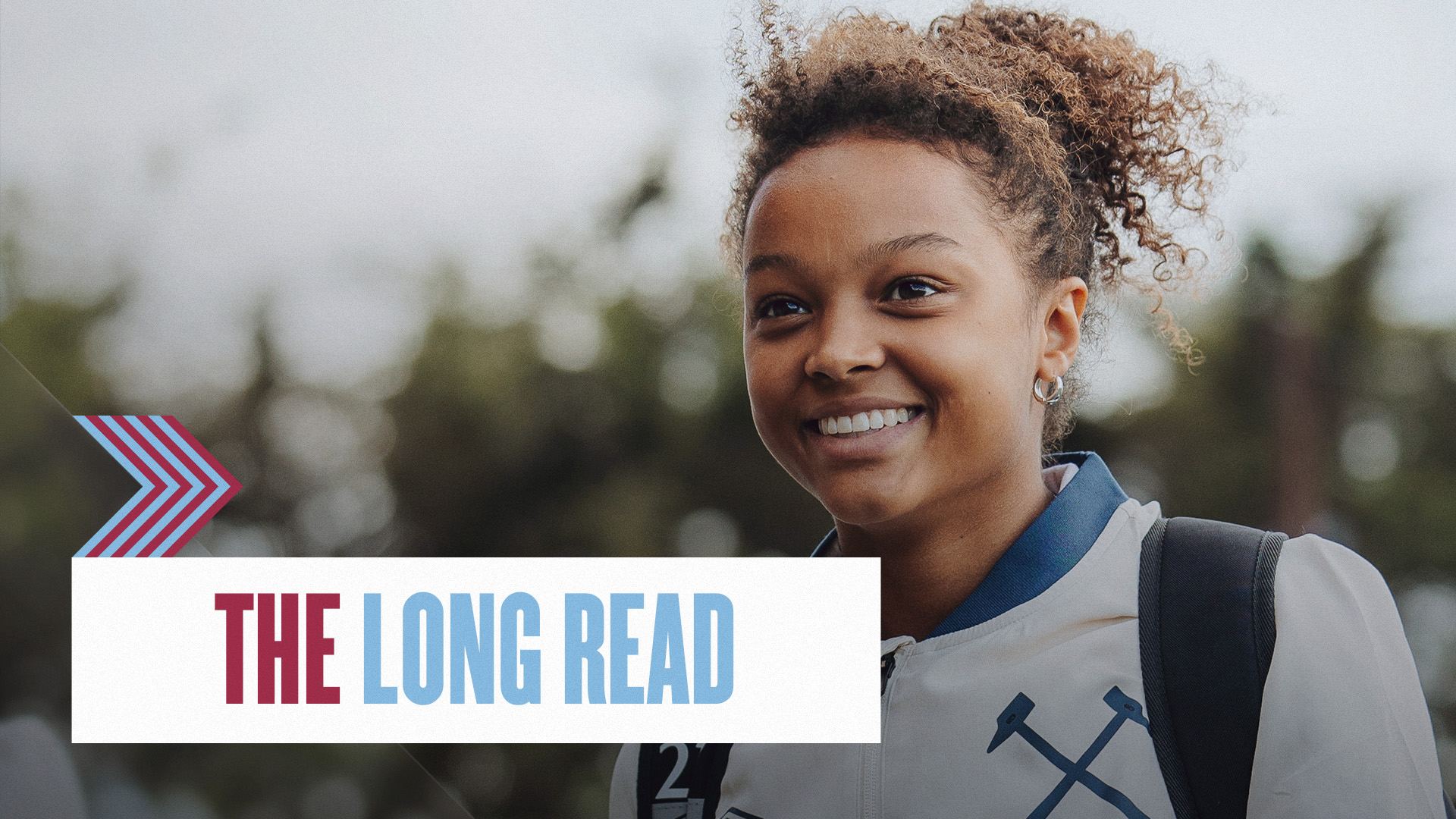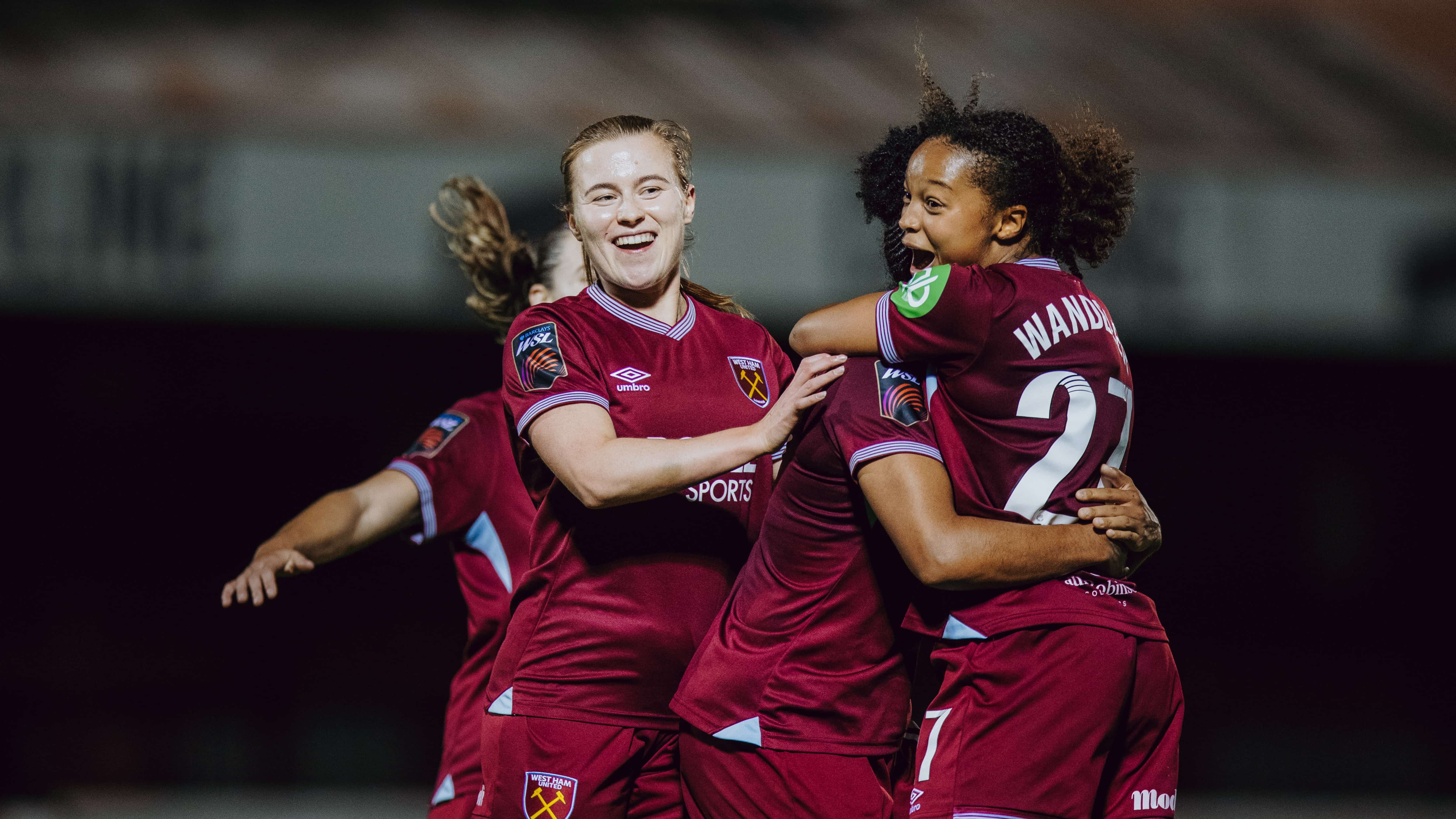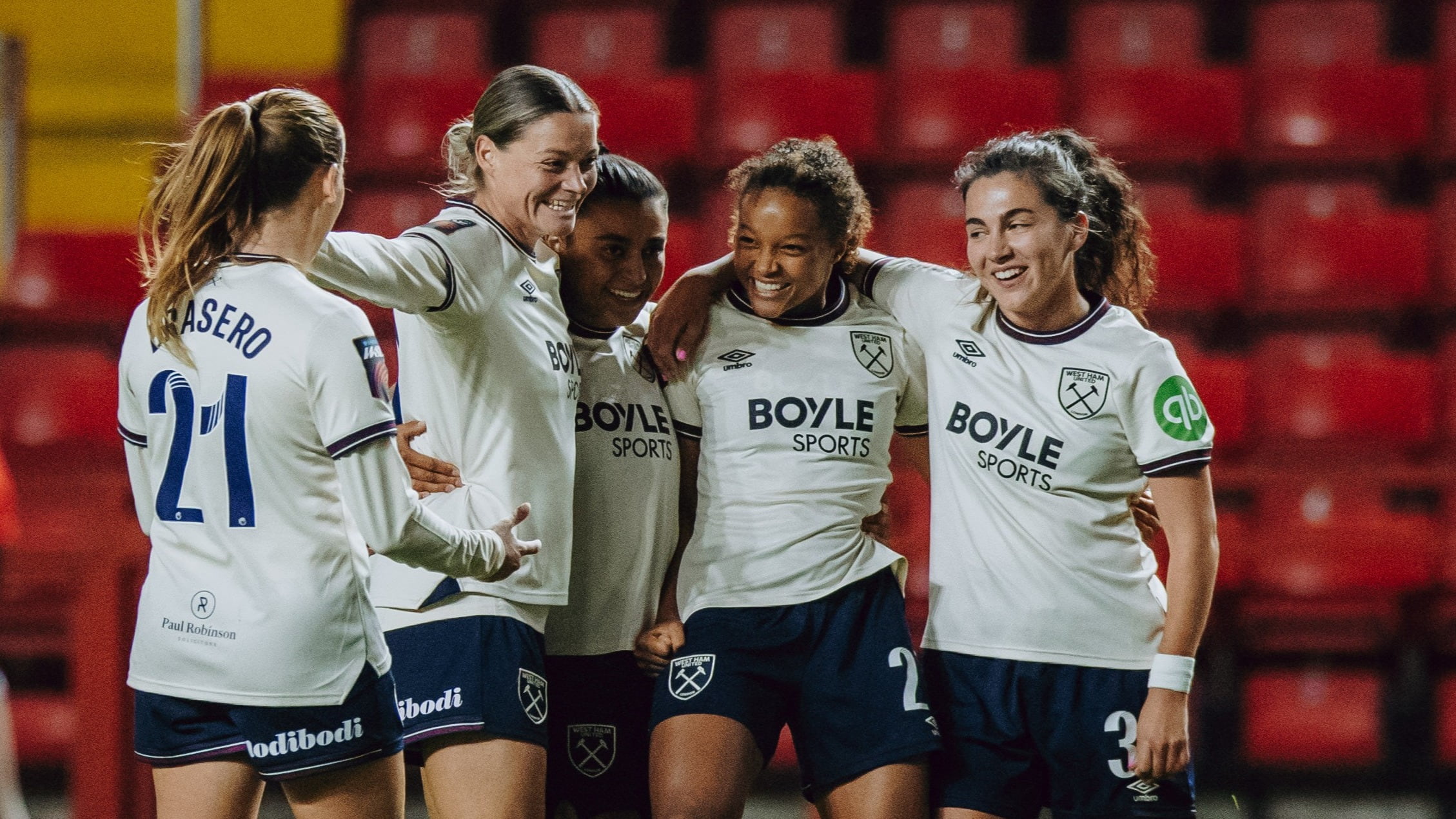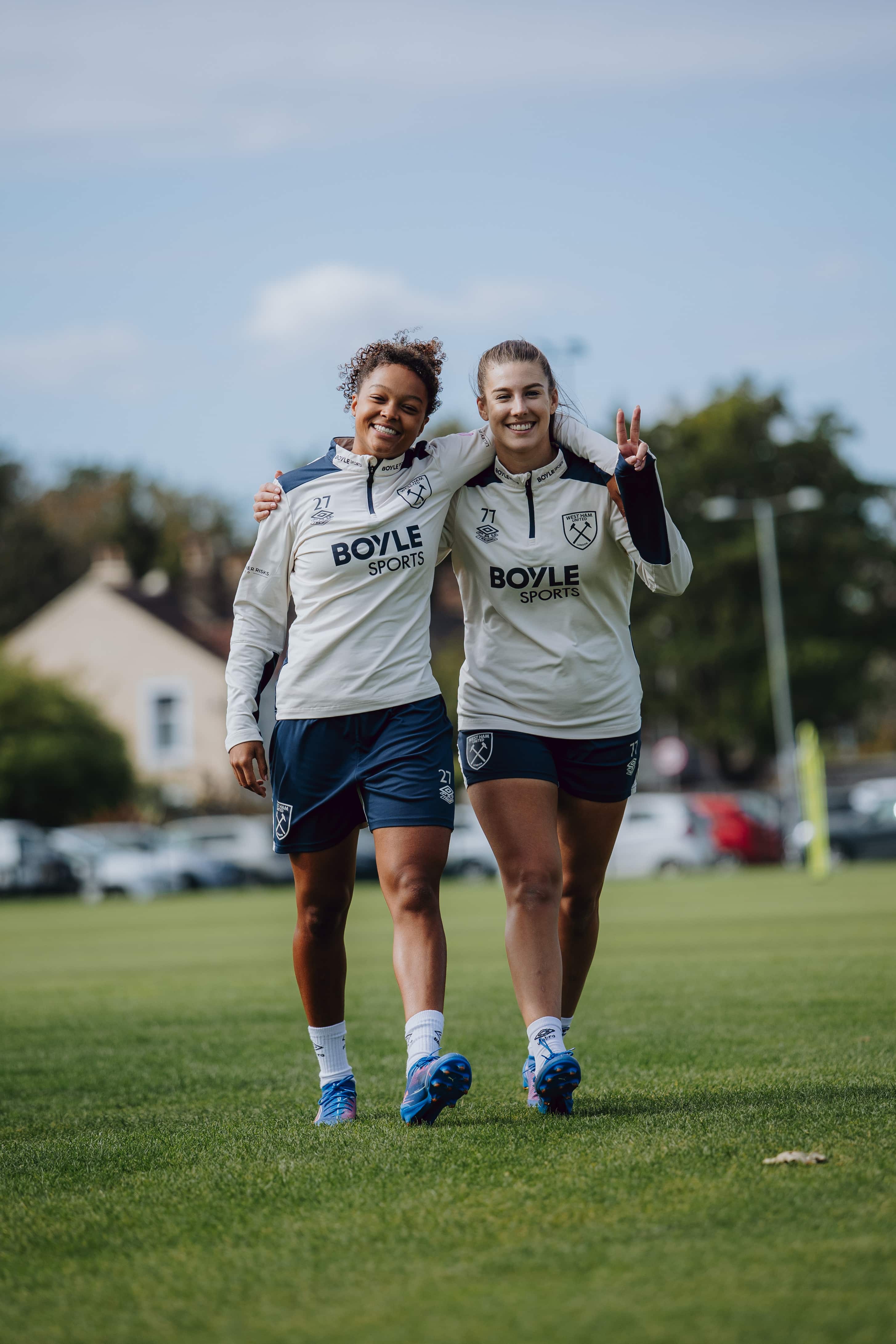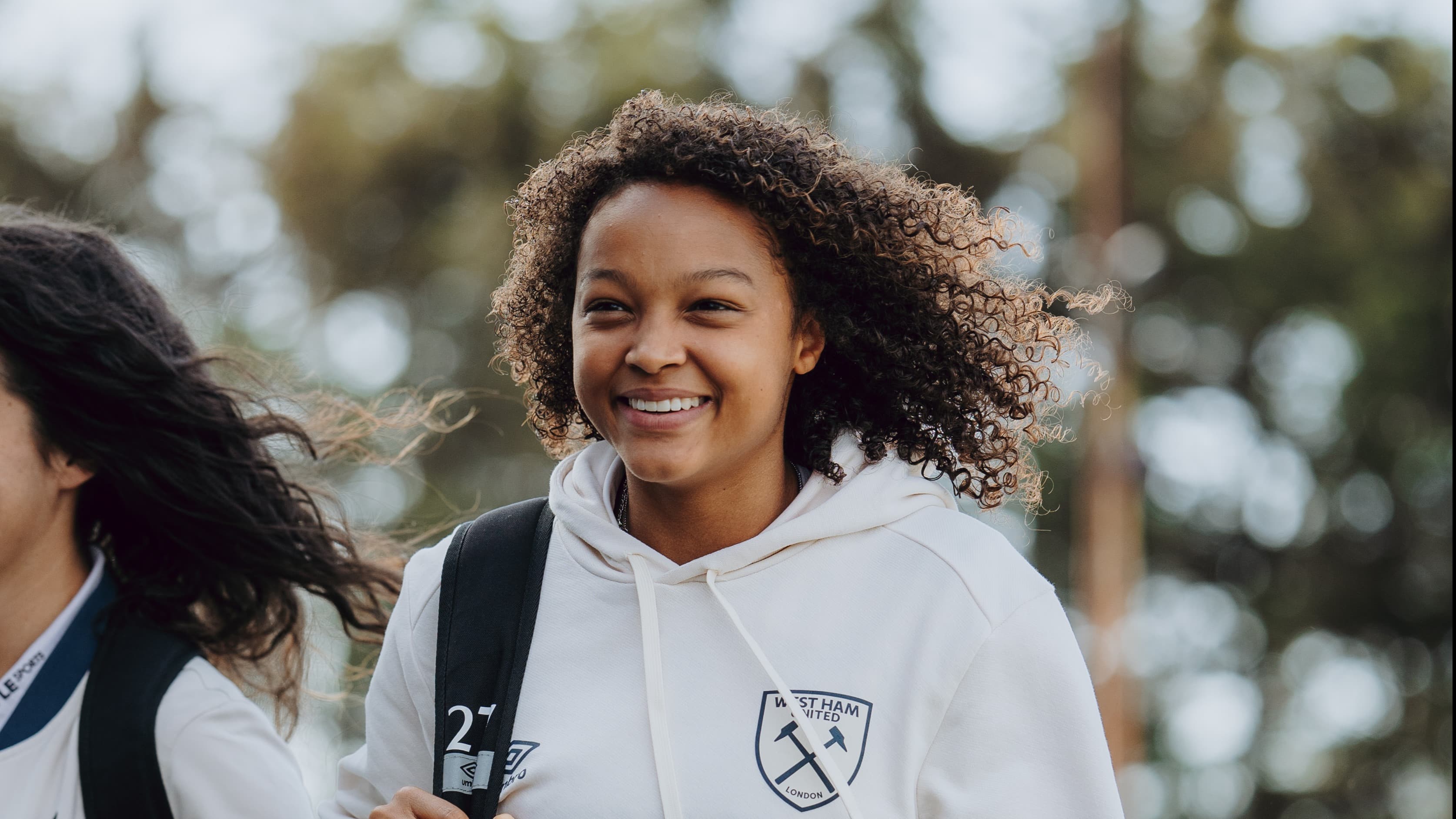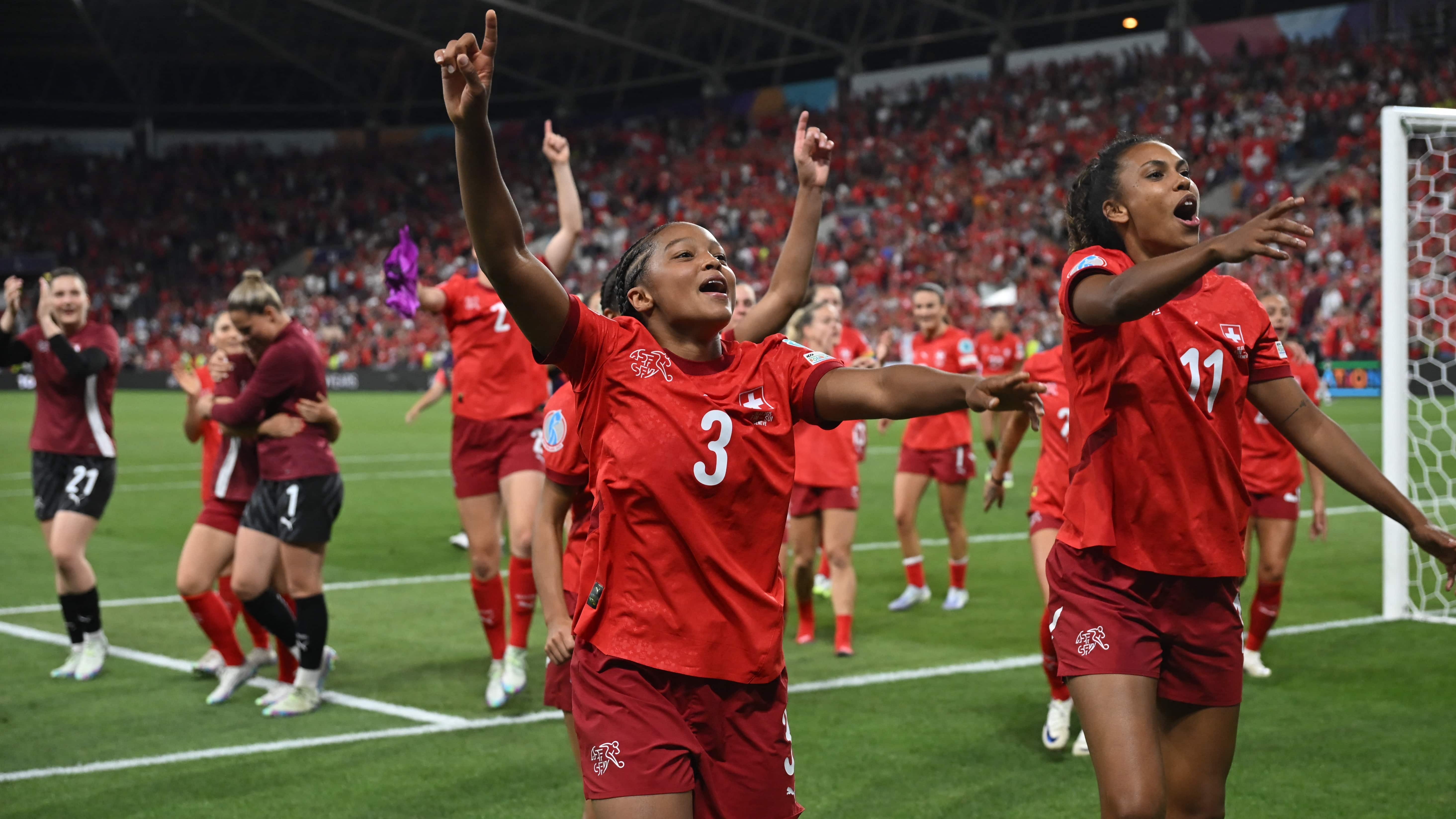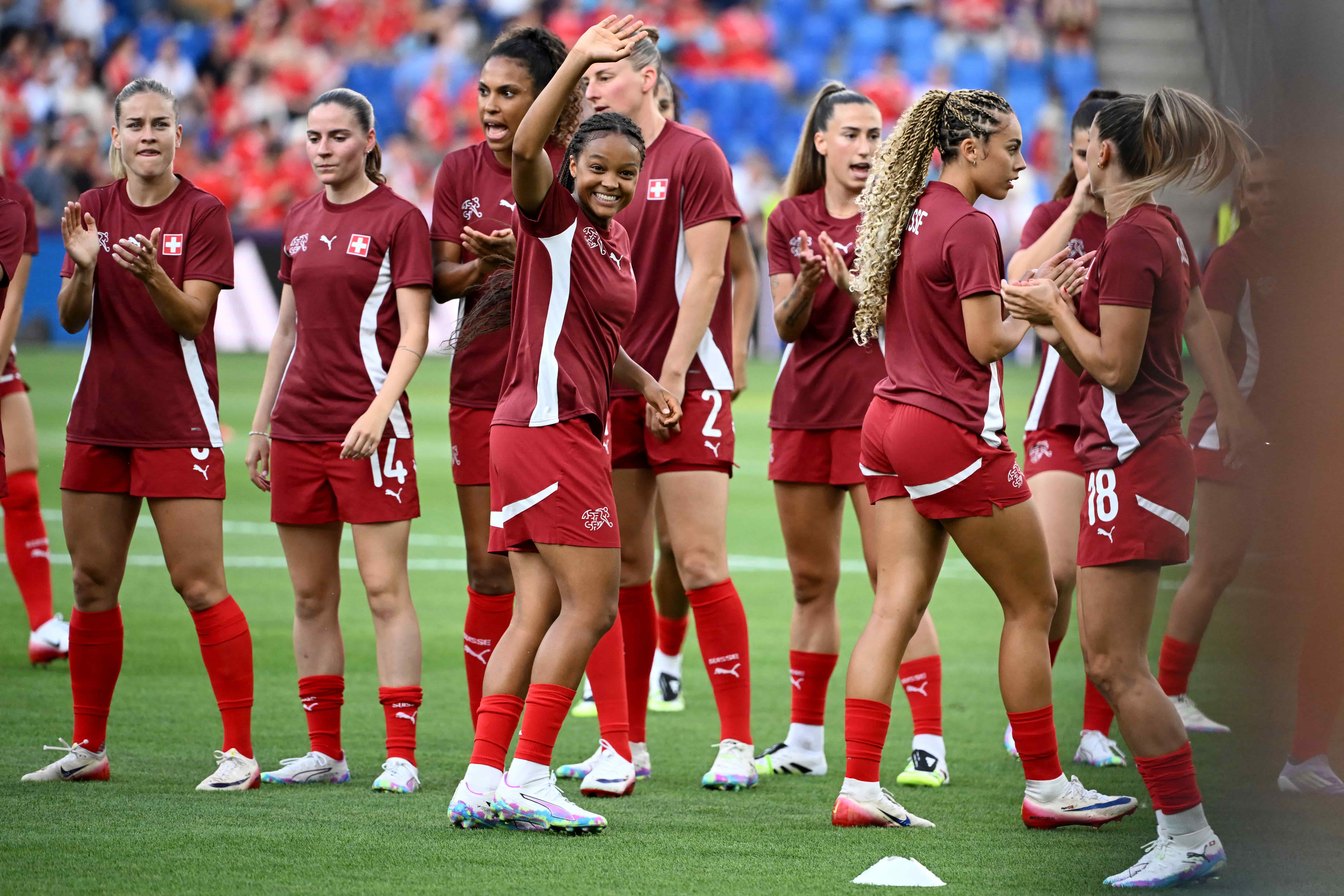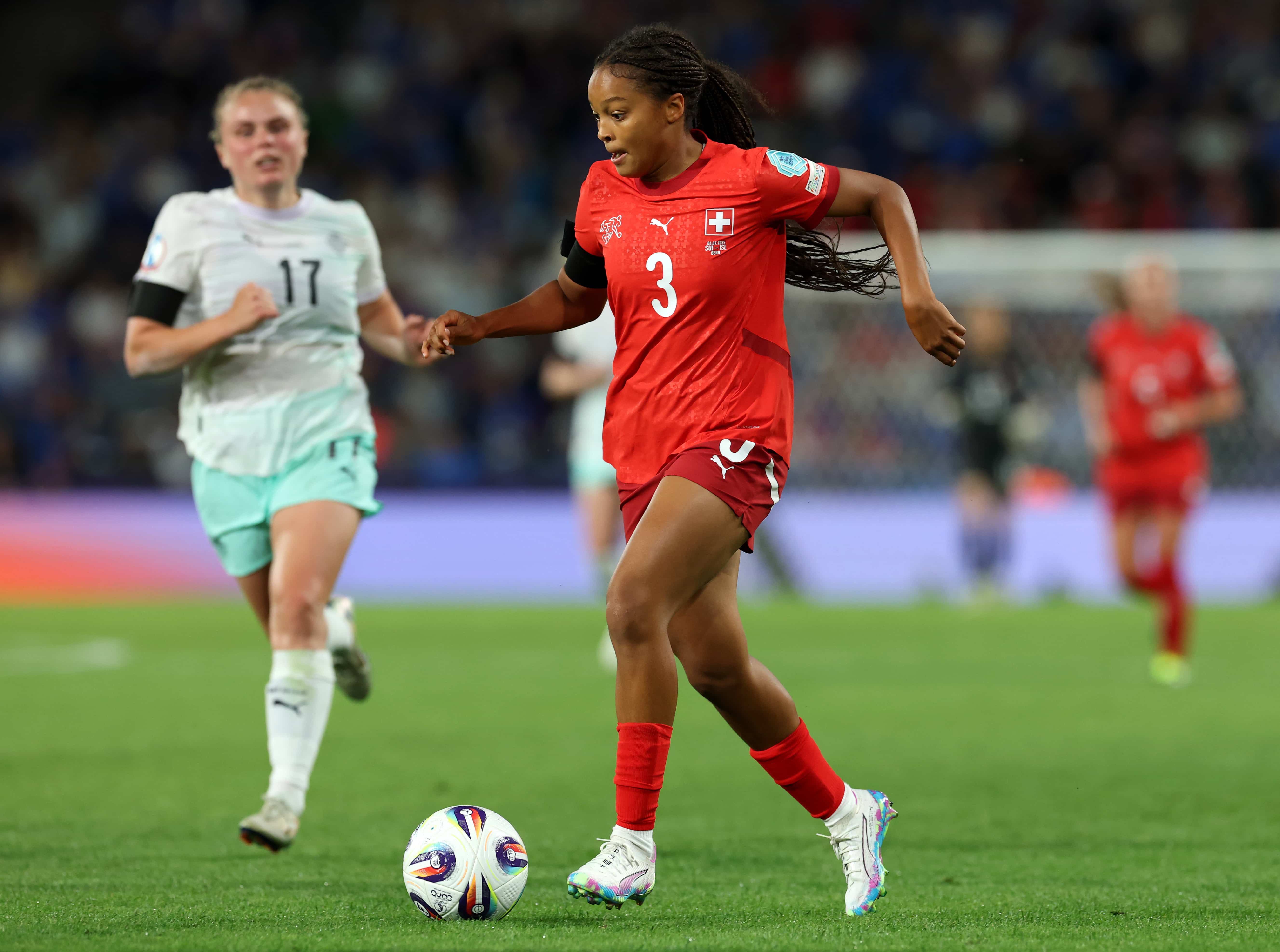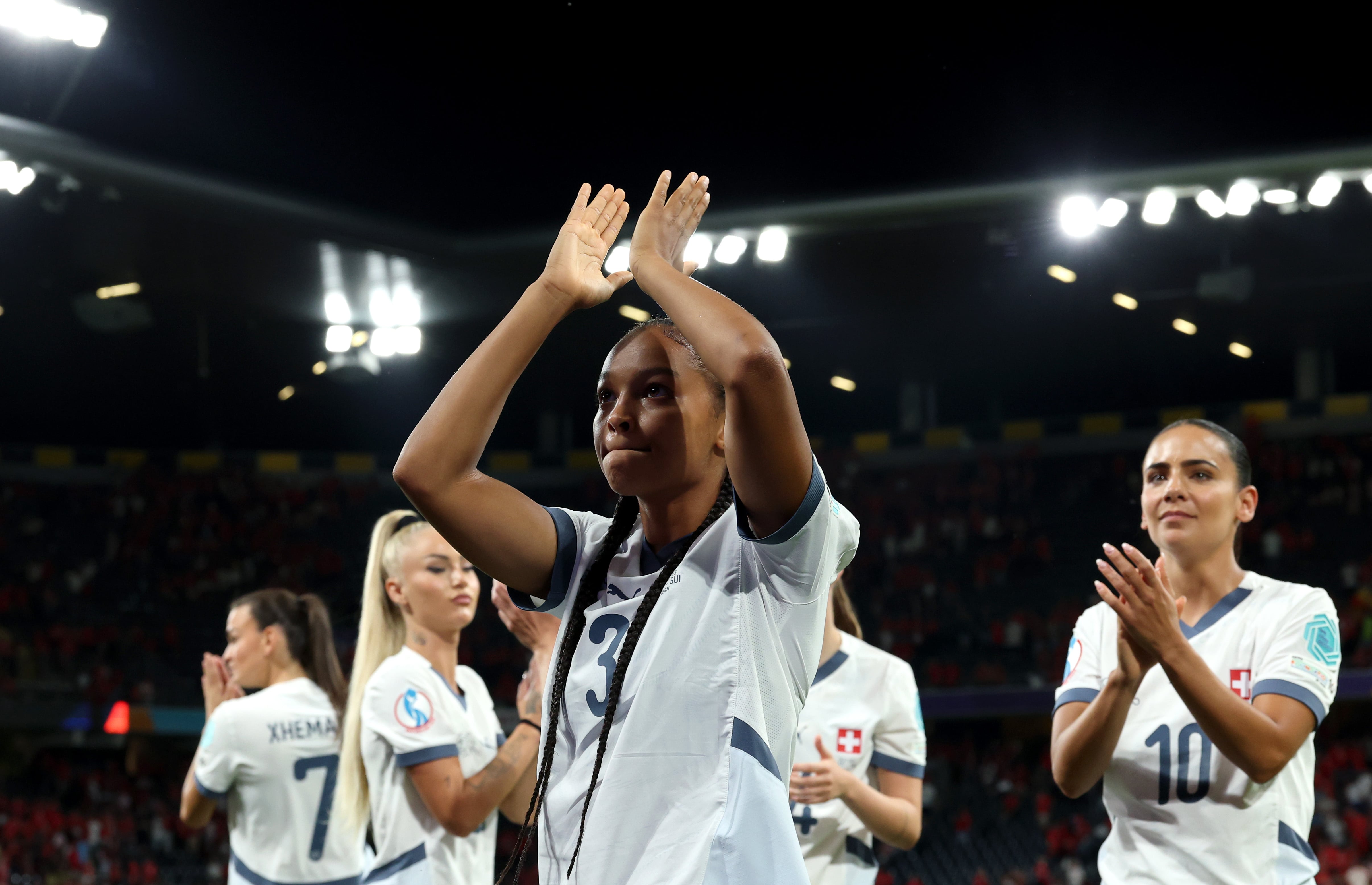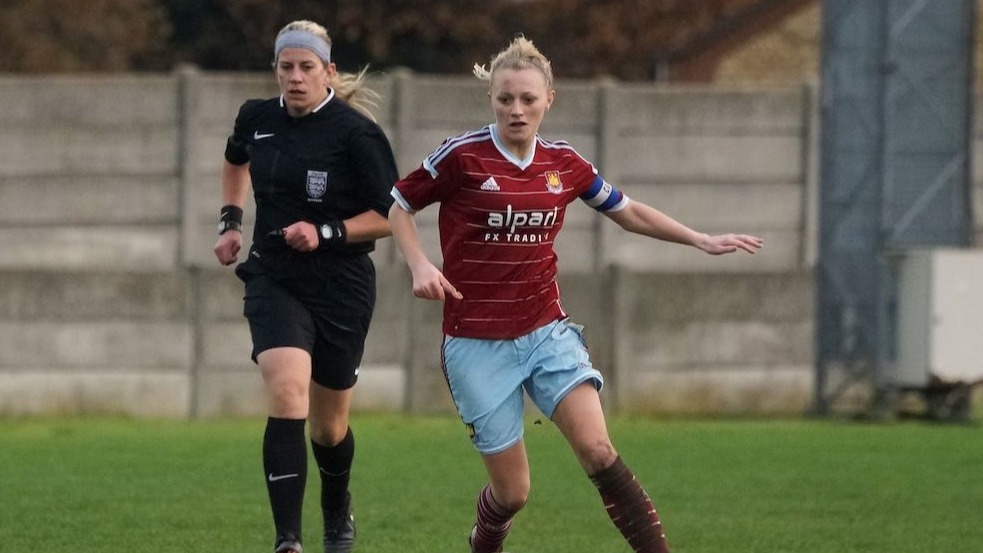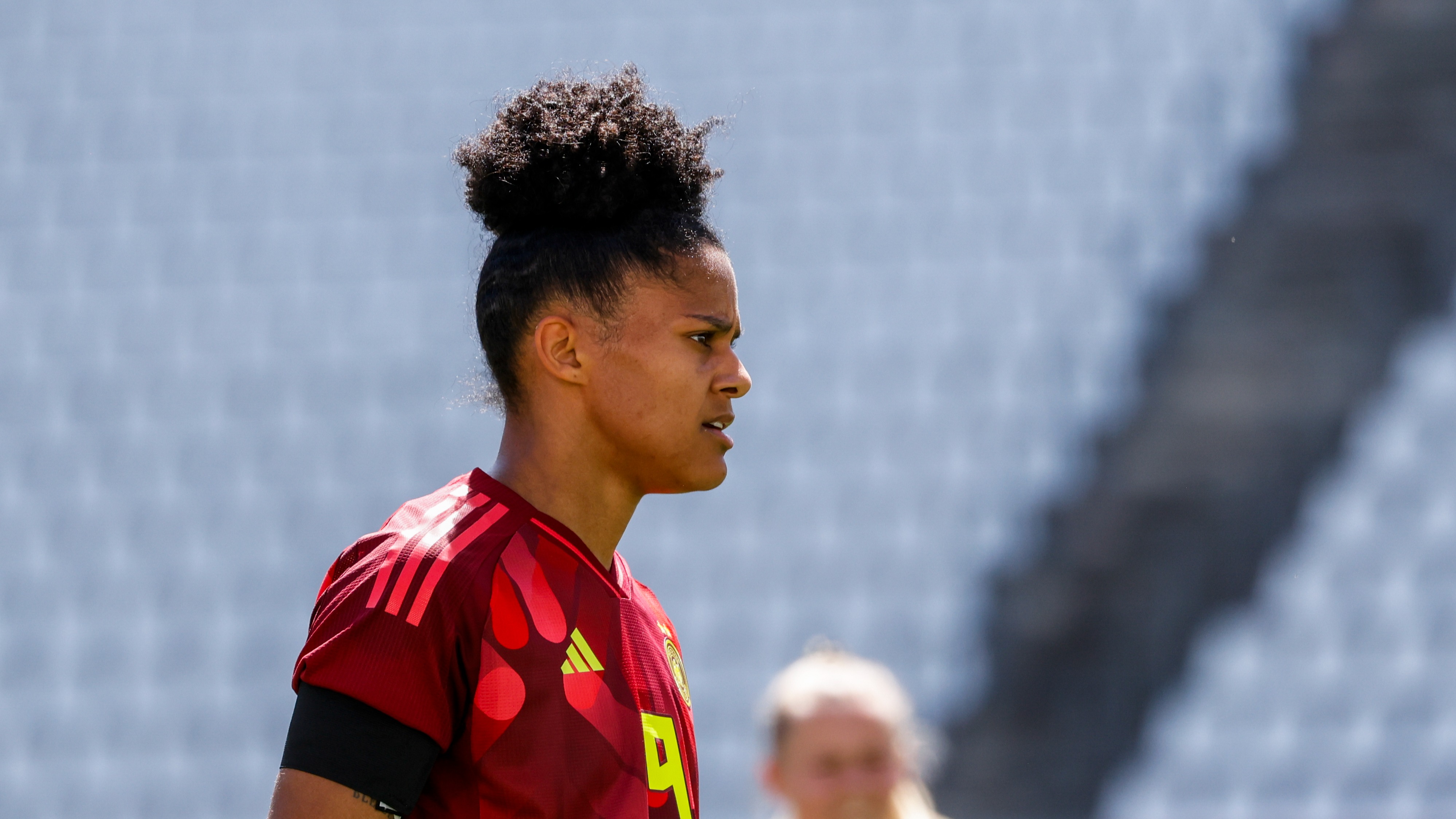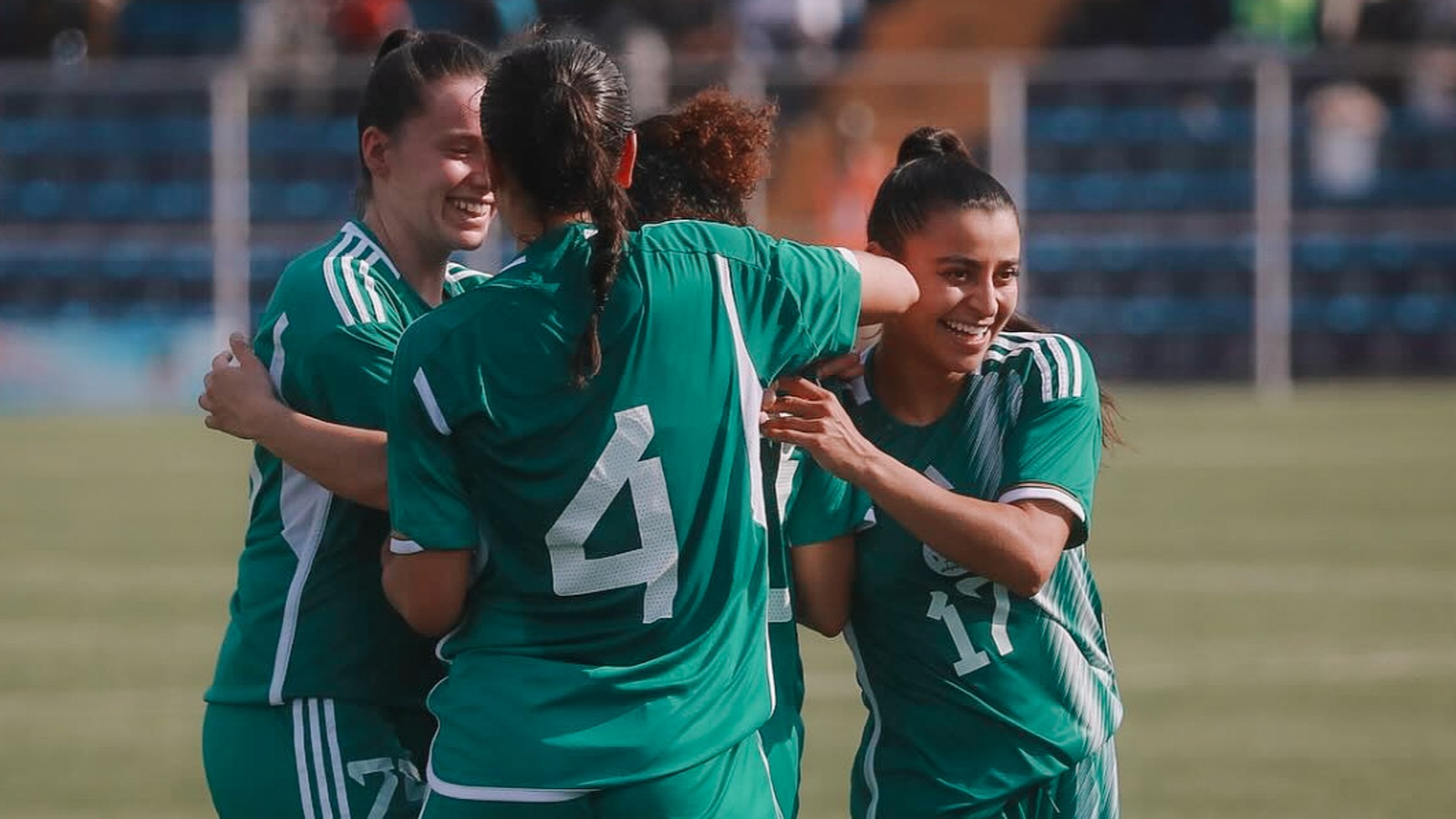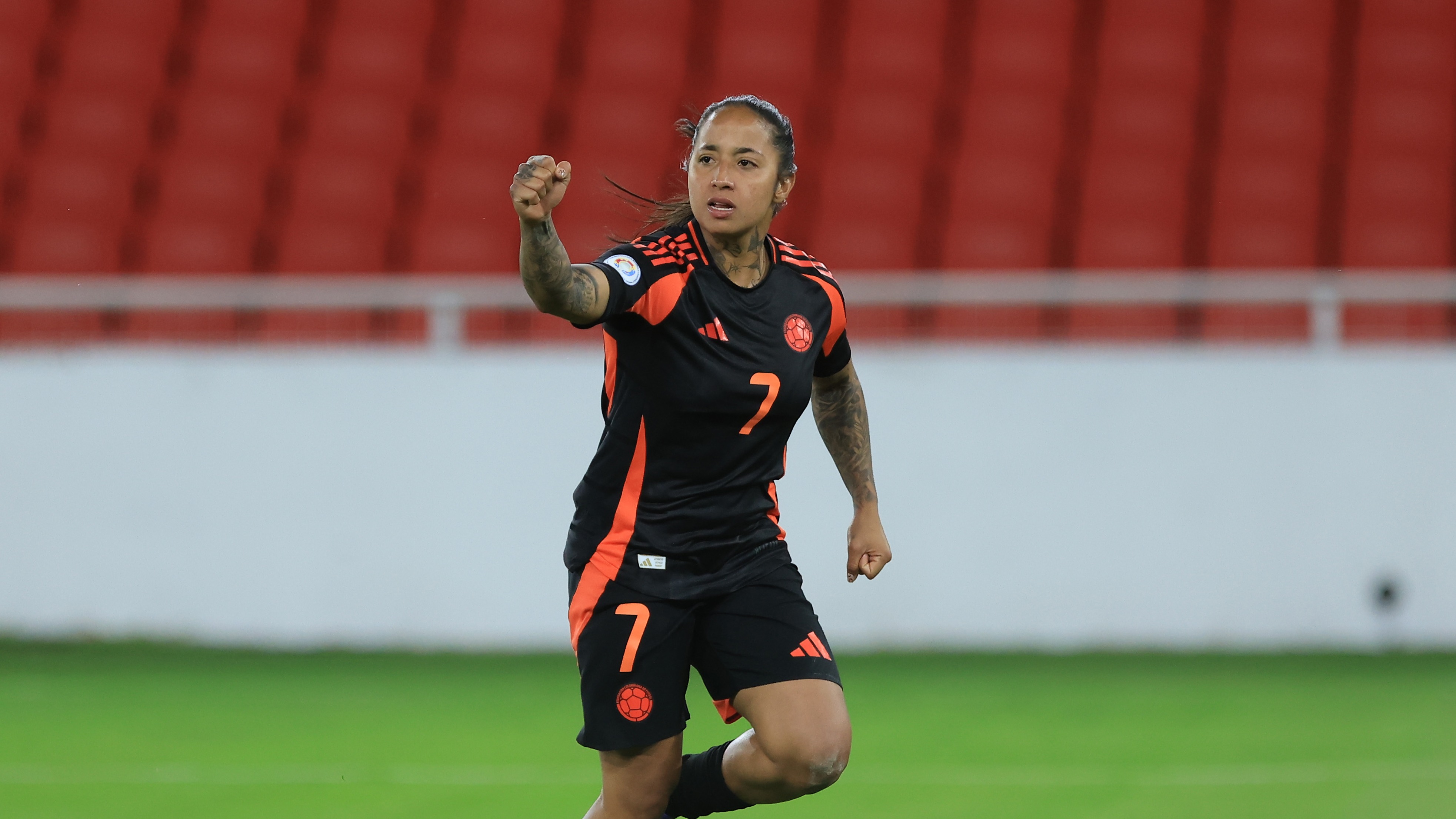Black History Month, which runs throughout October in the United Kingdom, is an important time when we honour the personal stories of those in our Black West Ham United community - and women’s team forward Leila Wandeler has reinforced how important the annual celebration is.
Our No27, who signed in the summer transfer window from French Première Ligue side OL Lyonnes, may be a Switzerland international, but she has strong Senegalese roots that have shaped the person and player she is today.
When she was six years old, Wandeler moved to Senegal, the country where her Mum’s side of the family is from, and it was there that her footballing journey began.
Wandeler was inspired by watching her Dad and brother play football together at a young age and soon wanted to join her brother’s team, Dakar Sacré-Coeur, in the Senegalese capital. Although she was initially told that girls weren’t allowed to play for the team, Wandeler, speaking to us at Chadwell Heath training ground, wore a smile as she described what followed.
Showing her brave, determined and courageous character, Wandeler gave the club no choice but to sign her and she soon became their first-ever female player.
Her trailblazing attitude had such an impact that Dakar Sacré-Coeur now have their own women’s team in their academy. Talented prospects also have the opportunity to take their career to OL Lyonnes in France after a tie between the two clubs was created following Wandeler’s move to the French club in 2023.
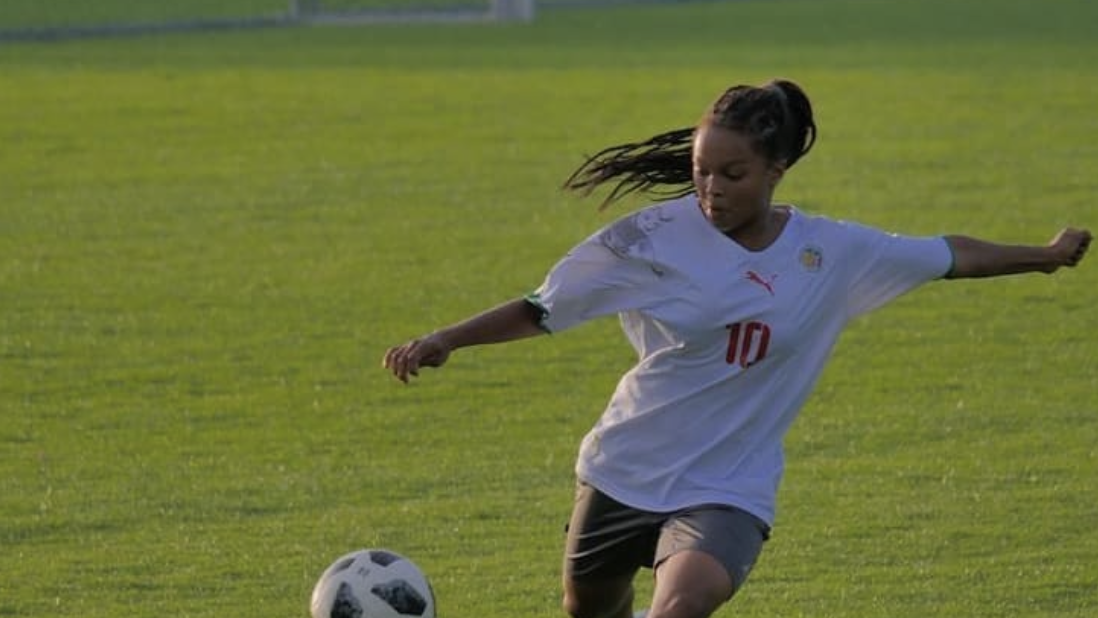
Soon after Wandeler’s switch to France, which followed spells at FC Corminboeuf and the Swiss Football Association's Football Academy in Biel, she suffered an injury on her left foot, which forced her to have cartilage surgery. Subsequently, she spent a lengthy period of time on the sidelines.
After making what she thought was a recovery, Wandeler was called up to her first-ever Switzerland senior squad in June 2024. But on her first day in training with her national team, the injury flared again, forcing her to withdraw from the camp.
Football, and life, has a funny way of working. If you had told a despondent Wandeler when she left Switzerland's camp that she would be playing for her country at their home European Championship finals a year later, surely she wouldn’t have believed you. GenevaBut there she was, with only one cap to her name, stepping out onto the international stage with her proud family, friends and nation watching from the stands as she appeared as a substitute in group-stage ties with Iceland in Bern and Finland in Geneva, and the last-eight defeat by Spain in Bern.
After playing three times at UEFA Women’s Euro 2025, Wandeler signed for the Hammers and has impressed in her first few months in Claret and Blue, with her standout moment so far coming in our Subway® Women's League Cup fixture at Charlton Athletic in September. The fearless nature that earned her an opportunity in Dakar was on show in England, as she pulled off an audacious nutmeg before curling the ball into the top-right corner with aplomb.
At only 19, Wandeler wears a mature head on young shoulders and is paving the way for girls in Switzerland and Senegal, instilling them with the belief that they too can achieve their dreams.
When I moved to Senegal at six years old, football was different.
Women would not play football, so I was the first woman to play for my team (Dakar Sacré- Coeur). I was innocent. I wouldn’t even think about it. I would just play.
The first time I went to see the club, they said, ‘No, it’s not possible [for girls to play for the team]. We’re not going to take her’. My parents asked for them to give me a chance. I don’t remember this, but apparently in my first training session, a guy pushed me over and I fought back. That’s when they saw that I was not afraid to have boys around me. I was sure I could do something in football.
I learned a lot playing in Senegal. They now have a big women’s team because I could show a path [in the game], and this is super special. This chapter of my life was very important for me.
I’m always in contact with the president of the club and I have good contact with the coaches I had there. It feels amazing to show a way for girls. They know if they start from nothing, they can still achieve such big things.
Black History Month is really important.
Racism is still part of our society and part of football. For example, in [Real Madrid and Brazil forward] Vinícius Júnior’s situation, it shows it (racial abuse) still happens. It’s an important subject. We need to stick together and not accept it.
It’s a really important subject for me. I would say I haven’t experienced real racism, but I can still see that people are not treated the same today. If we can show we’re active about it in our team, that would be amazing.
After I returned to Switzerland after four years in Senegal, I was one of few Black people in my school.
That was different, but I loved my time in school. My friends were really nice to me, so I never had any problems. It’s important for me to have both cultures in Senegal and Switzerland, and I still had the chance to go back to Senegal every year.
I was super excited when I signed for OL Lyonnes but at the same time, it was one of the hardest parts of my career.
I had a big injury on my left foot when I arrived in France. I had to have cartilage surgery. I wanted to come in and show my capacities on the field, but I spent eight months working on my injury and fitness at the training ground. I made some improvements and then had chances to play two games with the first team, but the pain wouldn’t go away. After two months, I had to start [the recovery] again.
Lyonnes were amazing with me. They had trust in me and did an amazing job to put me back in shape. I didn’t feel alone.
Lyonnes and Dakar Sacré-Coeur now work together.
They have a link where the best players in the academy of Dakar Sacré-Coeur go to Lyonnes, so they now have a few Senegalese players there! The president of Dakar Sacré-Coeur came to Lyonnes for a reunion and I met up with him. He even invited me into a meeting and wants me to take part in the project!
After my first call-up with the national team, on the first day of training, I couldn’t play anymore because of the injury.
It was one of the hardest times in my career. I’d worked so hard to get back onto the field, I was in shape and I was at my best level. I just couldn’t help the pain in my foot. It was hard to say why I had this pain in my foot again. I didn’t have a timeline as to when I wouldn’t have this pain anymore. That was really hard and I had another seven months off the field.
The Euros was something crazy that happened to me.
Of course it was my goal to play for my country when I was younger, but with the injuries, the goal was a bit more difficult to achieve. The coach saw the potential in me and took me at the last minute into the squad. I was shocked, I didn’t expect it, but it was the best time of my life.
The players were amazing to me. I felt in the family as soon as I got into the team. The games were so amazing, I had chills every time I saw the Switzerland fans.
I learned a lot from the older players because I had not really played with players like Lia Wälti, who have so much experience in football. I think that's what I learned the most, to play with the most experienced players.
I feel really settled at West Ham.
I really appreciate the girls and something special we have in the team is diversity. I can talk with my Swiss players, [people who speak] Colombian, French players, we have everything in the team and I think that’s really nice to have. All the girls are lovely. I know a bit more about the players and staff. I’m really happy here.
Everybody’s friends with everybody, even if they don’t speak the same language. I think that’s an amazing thing to have.

